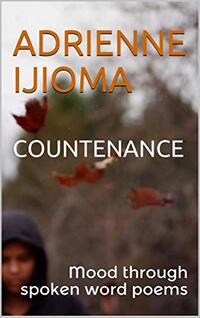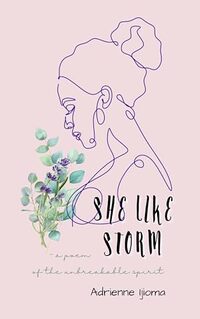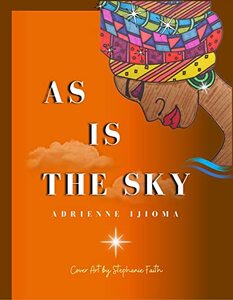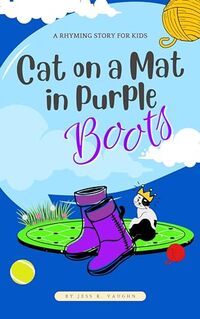Jess Vaughn Interview Published on: 10, Nov 2020
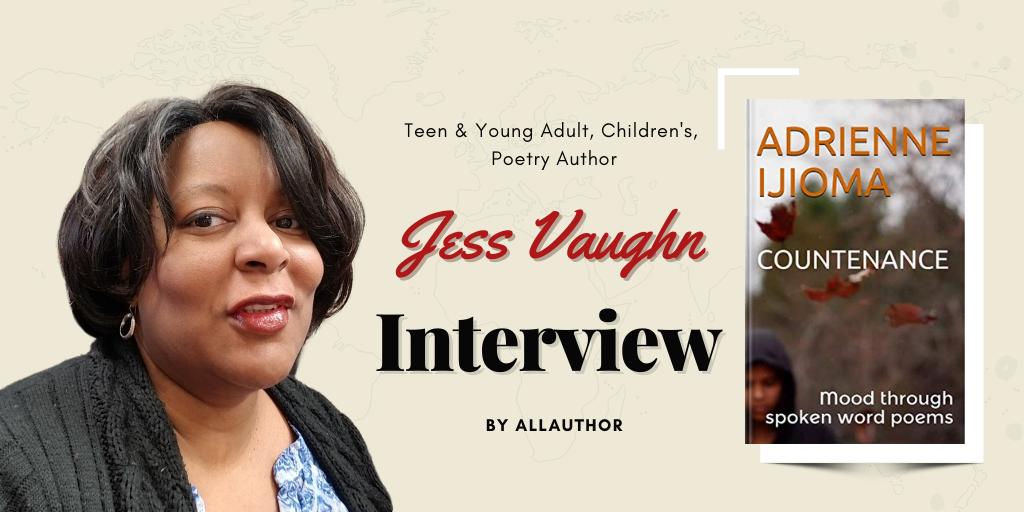 What is one lesser-known fact about your childhood?
What is one lesser-known fact about your childhood?
I was not your average kid, I suppose. I was really aware of myself even at a young age. I felt more mature than kids my age. Instead of Barbies and Hot Wheels in the seventies, I thought about deeper things like the purpose of life, what existed beyond the stars that we could see, what death was… Often while others were at play, I was absorbing knowledge from math books, encyclopedias (remember those?), phone books, nursery rhymes, fairy tales and the bible. I guess you could say learning was my hobby. I read anything I could get my hands on, but then I sat and meditated on it. This was while I was still in single digits, like 8 and 9 or so on.
Why do you write poems? How does it help you?Poetry became such a vital force in my adolescent development and adulthood because I learned its power as a very personal form of therapy. My father died when I was six and I saw him in his coffin. I never forgot that. I wrote to release emotion, to work out my feelings and really, to combat depression. When I say ‘Poetry is Life’, it is not just a catch phrase. It is how I breathe. I wholeheartedly believe that poetry can and has saved many lives. It is music and dance arranged on paper.
What encouraged you to write your first winning poem in third grade, Bored to Death?I began to fashion words and thoughts into poems in third grade when my teacher Ms. Phillips gave us an assignment to write a poem using certain vocabulary words. I must have read enough poems to believe I could do it easily and sort of neglected the assignment until the last minute. Walking to school one morning, I remembered the assignment was due that day and I had nothing. I looked over on the side of a building and a billboard above it said “Bored to death?” Can’t recall the advertisement, but that question was the basis of a silly poem of a girl dying in class because she was bored to death. I assured my teacher it was not about her, just something I came up with. After receiving a grade, I threw it away because I thought it was stupid. Little did I know that my teacher retrieved it from the trash and entered me into a regional poetry contest, and I won! I would go on to win many contests throughout grade school and middle school.
How does one go about the process of self-publishing?Ooh, self-publishing is a continual learning process in which you grow as you go. I learned about self-publishing through Facebook. I must have seen an ad for someone promoting a How To book about Amazon which led me to KDP – Kindle Direct Publishing. I went to the site and began reading. Later, I joined a free webinar to learn more. I have probably taken 15 web trainings in the last two years and joined several Facebook writing groups. Twitter is the writing community’s mecca as well. Following authors and joining the groups are integral to learning the ropes. Through all of these resources, I found NaNoWriMo, AdobeSpark, Reedsy, Canva, Autocrit, Fiverr and so many more platforms that enable me to write, edit, design covers, write my bio, self-promote – which by the way, one of these was the means by which I was introduced to All Author.
A person interested in self-publishing must really take to heart that first word – self – and recognize that all aspects of the process will be on them to get accomplished. From writing the first (of many) drafts of a manuscript, to editing (many times), discussing struggle points with others, working out scene or character issues, securing beta readers to get perspective, rewriting, polishing, proofing, designing and typesetting, deciding where and how to publish, price, launching, marketing, advertising, promoting… It is a major undertaking, but the premise being to keep control of your work and then getting a higher percentage of the royalty. It also will require more financial output at the onset, especially if a writer intends to hire out some of these steps to contractors: illustrator, editor, marketing, etc. The timing from concept to launch can possibly be shorter, but there is so much more involved than if a writer goes the traditional route. I support both. What should be considered to publish a successful poetry chapbook?With composing a chapbook of poetry, a writer considers whether they are doing a collection of written works or a specific theme. I have four collections in publication now and three are theme based. I had a specific subject, person or situation in mind that spurred those works. I try to write in a progressive order, sometimes building up emotionally to the subject or situation; or it may be a purge of raw emotion and then I always want to end the book on a positive note. So, for instance, if the majority of the poems are angry, sad or bitter, I share works about overcoming, enduring, being encouraged or made strong at the end. I never want to end on a rant or emotionally exhausted. I want all my books to uplift at the end. To say, yes, it’s ok to feel this way or that way, but don’t get stuck in it. Feel it, express it, then move on. It does not control your life or your future. Learn from it then leave it in the past. When I get my work to completion, I feel accomplished and satisfied. That is success to me.
How did you begin writing the poems in "CUTS ON ME: A contemporary collection of spoken word poems"?Cuts on Me was written of out subconscious pain from experiences endured through childhood and young adulthood. So many people share the story of sexual assault, trauma, molestation, etc., but not many felt free to speak it out until more recent years as movements began to shine a spotlight on it and put faces and names to perpetrators. My work began with a simple TV surfing one night and I saw former first lady, Michelle Obama, in conversation with Shonda Rhimes – who was hosting a women’s conference in Philadelphia. Just one line from her set the whole thing in motion when she asked: “Can’t you see these cuts on me?” She was talking about a woman’s pains, sufferings, tragedies that she wears like tattoos on her skin from childhood hurts into her adult life. Like a lightning strike, I flashed back to my teen days and what I endured in my neighborhood and realized how profound the effect it had on my subconsciously. There I was in the very moment wearing sweaters in summertime, just as I had as a kid trying to cover myself from the predatory eyes of male neighbors. Cuts on Me went through various hurts – loss of a loved one, loss of innocence, lack of equality for women in society, fear for the future of women and girls who have fed into the notion that they are what they look like or what they wear. I have had so much positive response from that book. It has been an amazing outcome to see how it helps others.
How did you come up with the title of your book, "COUNTENANCE: Mood through spoken word poems"?Countenance: Mood Through Spoken Word Poems was simply about the countenance, the face. Our face and particularly our eyes tell so much of how we really feel, even when our mouth or our smile is lying for us. So, this book was about feelings, moods, emotions: how a person feels about oneself; how it feels to be ogled going to work, how it feels to have your eyes on someone who doesn’t see you; how it feels when a relationship fails; and so many hurts in between. I guess it’s clear that much of these recent works have come from pain – either someone close to me, people I have observed or my own.
Where do you get your inspiration for poems from?Inspiration to write poetry is as random as a breeze, as a cloud, as a falling leaf. I write about anything and everything. Give me a subject, a melody, a beautiful scene, an ocean wave, a baby’s laugh, anything at all and I will write you a poem. I suppose it’s easiest to say I am inspired by life.
How do you decide whether you should publish a chapbook or a full poetry collection first?I have no great formula or spectacular theory on whether it is right or best practice to write a chapbook or full collection first. Once I have my theme in mind or my title, words eventually begin to flow. When I feel like I’ve exhausted the emotion or if I write a poem that I determine puts a stamp on the end, then I stop. However, many poems that turns out to be is totally random. I have no control. The words are in control of themselves. When they stop flowing, I stop writing. Countenance was just one poem after another coming out in just one sitting. I had had a conversation with a friend who was going through hard times and I was so overwhelmed with emotion after our conversation. I could not put the pen down until emotions were completely spent.
How did you start writing poems as a beginner?From the beginning, my poetry began with reading other poets in school. Langston Hughes, Maya Angelou, Edgar Allan Poe, Shakespeare, Yeats, Homer, Emily Dickinson, E. E. Cummings, and so many other names I’ve forgotten. I had no idea the influence until I consider the varied writing styles that my poetry has. Until recently, I never even knew the names like soliloquy, limerick (well, I knew that one from Edward Lear), rhymes, free verse, iambic pentameter, narrative, haiku…. I didn’t know a third of the styles’ names until 2018 when I began doing research. I was seeing things and saying Wow! I write like that! I write that too! So, now I know a lot more about meter and time, what doesn’t and should rhyme. (as one of my poems say)
What helped you to keep going forward and do not lose your balance during the covid-19 crisis?This surreal season of Covid-19 began in utter disbelief, but as I settled into the new routine of homeschooling and managing all my business pursuits from home, I found huge opportunities for increased creativity. What every writer longs for is more time and space to write. The coronavirus just laid it out on the table for us. Though I face the same financial stresses and daily concerns as everyone else without work, I have always been grounded in faith. So, this has also been a fine time to connect more as a family, become cemented in our faith and glued to the keyboard, cranking out more ideas!
What are the best ways to market self-published books?I wish I had the magic bullet of marketing for the indie author. I have found that the best exposure to poetry is to let people hear it. More than writing a collection, I want to provide an audio version because that is most impactful. I am currently working on the audiobook for COUNTENANCE. Along with audiobooks, I do live spoken word sessions on Insta and FB. I have recordings on my website as well as my new podcast, Jess Vaughn Writes on the Pod. During the shutdown, I discovered ZOOM, so I have been doing live events on that platform too. I continue to post new work in FB groups, on Twitter, and I even temporarily ventured into TikTok. But, you know, I have a family and all the social media is quite time consuming, so I must schedule posts, manage my time and attempt to be balanced in what I can do. I have run ads on Google to draw traffic to my website; I try to keep up with my connections on All Author, Realistic Poetry & periodically participate in The Poetry Super Highway radio events. Writing is my life. I just cannot stop.
Did your teacher, Ms. Phillips read any of your books? What was her review?I have not seen or heard from my elementary teacher in decades. I wish I had more details about her and all the others that influenced and encouraged me. Ms. Carrie Strode, Ms. D’Angelo, Ms. Joyce Holley, Ms. Shirley Williams and Ms. Phillips.
What is your writing dream? How close do you think you are to achieving it?My dream is to write full time as a means of sustenance and joy. I had been an executive admin for nearly 30 years and recently began teaching English online. I also taught individuals, group workshops, adult business and elementary English in Italy for nearly 3 years. Meanwhile I have over 25 WIPs waiting for me to bring them fully to life. I would love to build an online community of readers that appreciate my work. There is so much still to talk about and learn. I hope within the next couple of years, I will be on the solid path to fulfilling this goal.
How has your experience of being associated with AllAuthor been?I love All Author! I am constantly surprised by the assistance they provide to writers in terms of connecting us to one another, promoting and displaying our works, giving us opportunities to grow our audience with all of the fantastic marketing tools they provide. Because of their banners and things, my social media presentation has greatly improved. I love being able to impose my book titles on their displays.
Share Jess Vaughn's interview
Poet, self-published author and entrepreneur, Jess Vaughn wrote her first winning poem in third grade, Bored to Death. She sold her first idea to Hallmark Cards when she was only sixteen. She writes about anything and everything. Writing is her life and with her passion and skills, she adds life to her stories. Her dream is to write full time as a means of sustenance and joy.

